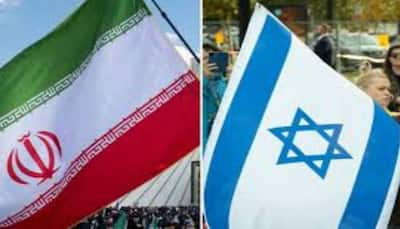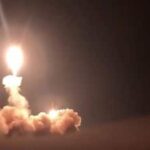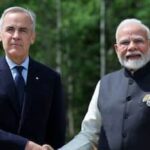New Delhi: In the early hours of June 13, Israel launched coordinated strikes deep inside Iran – hitting its nuclear facilities and military bases. Among the dead were senior commanders of the Islamic Revolutionary Guard Corps and noted nuclear scientists. Tehran claimed civilians were among the casualties too.
That same evening, Iran responded. Dozens of ballistic missiles flew across borders and rained down on Israeli air bases, some used for refueling fighter jets. A few breached the Iron Dome – Israel’s heavily guarded air shield. Central Tel Aviv, home to the Israeli military headquarters, was also struck.
As of this week, both sides are still exchanging fire – with Israeli Prime Minister Benjamin Netanyahu reportedly stating that the war would only end if Iran’s Supreme Leader Ayatollah Ali Khamenei is eliminated.
But these two bitter rivals were not always at odds.
In 1948, when most West Asian nations refused to recognise the newly formed state of Israel, Iran stood apart. Under Shah Mohammad Reza Pahlavi, Iran extended recognition and even formed discreet but close ties with Israel.
At the time, both countries were aligned with the United States. Already a regional heavyweight, Iran had embraced Western support during the Cold War. Young and isolated, Israel leaned heavily on partnerships beyond the Arab world. Iran fit the bill.
This mutual need led to what some described as a quiet alliance. Iran sold oil to Israel, even during Arab embargoes. Intelligence agencies Mossad and SAVAK worked together. Israeli infrastructure projects dotted Iranian cities, and there were whispers of a joint missile program in the works.
The revolution in Iran upended this arrangement. The Shah regime was overthrown. Ayatollah Ruhollah Khomeini stepped in. And a new Islamic Republic declared itself the ideological opposite of everything Israel stood for.
Iran stopped recognising Israeli passports. Travel to Israel was banned. Leaders started calling Israel “the enemy of Islam”. The diplomatic curtain fell, and hostility crept in.
By the 1980s, Iran began building a network of militant groups across the region.
In Lebanon, after Israel’s 1982 invasion, Hezbollah rose. Tehran trained, funded and armed the group. Then came the Houthis in Yemen and Hamas in Gaza.
By 1983, suicide attacks had begun. In November that year, Hezbollah operatives drove a car bomb into Israel’s military headquarters in Lebanon. More attacks followed – on embassies, on Jewish centers, on civilians.
In speeches, Ayatollah Ali Khamenei referred to Israel as a “tumour” and pushed for Palestinian self-rule. Holocaust denial became part of the rhetoric. These were not just ideological statements. They fed into a wider regional push to isolate Israel diplomatically and militarily.
In 2005, Iran resumed uranium enrichment at Isfahan. It claimed it was for peaceful energy needs. Israel and many others saw it as the first step toward acquiring nuclear weapons.
The nuclear deal in 2015 aimed to dial down tensions. But Israel never supported it. Prime Minister Netanyahu called it a “historic mistake”. When the United States under Donald Trump withdrew from the deal in 2018, Netanyahu cheered.
Years passed, but tensions only deepened.
When Hamas launched attacks on Israel in 2023, other groups joined the fight. Hezbollah opened a northern front. The Houthis began targeting shipping routes in the Red Sea. Israel responded by targeting these proxies – many were wiped out or severely weakened.
That shift may have prompted Israel to take the fight to the source.
On June 13, the Israeli airstrikes were described by some experts as the most expansive operations against Iran in over a decade. The very sites suspected of supporting uranium enrichment and military production were flattened.
Tehran’s response was immediate and unlike previous flare-ups, it included direct ballistic missile attacks into Israeli territory.
Both nations had crossed lines they had long avoided.
Diplomatic backchannels have reportedly gone silent. Iran’s foreign ministry has accused Israel of trying to destroy negotiations over its nuclear future. Meanwhile, Tel Aviv remains on high alert, bracing for further retaliations.
A region once shaped by secret understandings and covert trade now watches open warfare unfold between two countries that once exchanged oil and intelligence and now exchange missile fire and threats of annihilation.
Stay informed on all the , real-time updates, and follow all the important headlines in and on Zee News.








